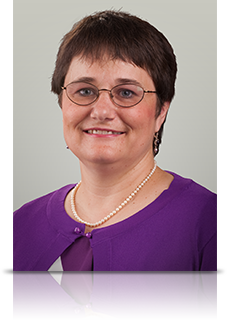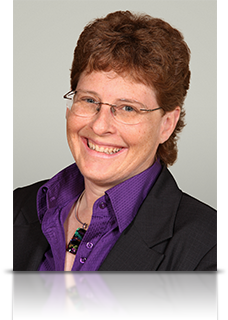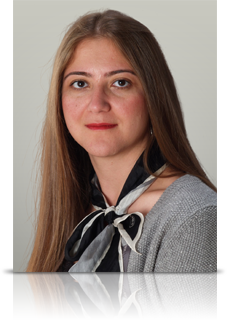
- This event has passed.
PES GM -Leveraging data to build models for future planning and resiliency sponsored by PES Women in Power
August 7, 2019 @ 2:00 pm - 4:00 pm
Grid adequacy and grid security are challenges for utilities as customer-owned DERs penetrate the electric grid. As the electric grid interfaces with customer equipment, this procedure increases risks for the already complex network. Utilities currently work hard to ensure the system is reliable, but the Utility of the Future will go far beyond grid reliability to a more holistic approach of resiliency, which includes grid resiliency, economic resiliency, and social resiliency at the least. How do we ensure a proactive approach to resiliency?
This panel will focus on attempting to define resiliency. Furthermore, panelists will explore the use of customer data, insights, and predictive analytics in our distribution and transmission planning systems to create more accurate projections of DER penetration, and ensure that DER capabilities are fully leveraged.
Panelists:
Carla Frieh – Director of Engineering, ComEd
Frieh is responsible for planning, designing and deploying the next generation of communication infrastructure on the power grid at ComEd and has a key role in developing the utility of the future. A unit of Chicago-based Exelon Corporation, ComEd delivers electricity to approximately 4 million residential and business customers across northern Illinois, or 70 percent of the state’s population.
Frieh has been in the utility industry for 15 years. She has held various engineering and management roles of increasing responsibility throughout her career at ComEd. Prior to becoming director of engineering, Frieh was the manager of reliability programs, where she was responsible for setting the strategy for ComEd’s reliability investments to ensure maximum customer benefits. Before that, she established ComEd’s Advanced Meter Infrastructure (AMI) Operations department. As lead of the AMI team, she was responsible for the health of ComEd’s smart meter system; including ensuring meters communicate reliably with the network and the successful integration of smart city applications on the AMI network. Frieh is also a technology lead on the IEEE Industry Technical Support Task Force.
Carla earned her bachelor’s degree in engineering from Purdue Calumet and her MBA from Lewis University.
Dr. Dana Al-Qadi – Engineer, AECOM
Dana Al-Qadi is a civil and environmental engineer with experience in smart cities, energy, resilience, and drinking water treatment and design. Current projects include smart city technologies, low carbon modeling, asset management, solar implementation, urban and rural resilience, performance metrics, stakeholder engagement, and vulnerability assessments.
Dana attended the University of Illinois at Urbana-Champaign where she earned her B.Sc in Civil and Environmental Engineering and a M.S. in Environmental Engineering where she researched pathogen inactivation in drinking water supply for point-of-use water treatment.
Dana earned her doctorate in Engineering Management from the George Washington University where she researched quantifying stakeholder engagement in urban water systems. She was recognized by the ACEC as a 2016 Young Professional of the Year. Dana is on the Associate Board for the ACE Mentoring Program where she supports students participating in STEM programs and is a member of the IEEE PES Society.
Katrina Lewis – AECOM
Katrina Lewis holds a BA in Organizational Studies and French from the University of Michigan and a Master of Public Policy from the University of Chicago Harris School of Public Policy. She is currently a senior consultant and project manager for AECOM’s Smart Energy Team where she leads smart city, resilience, and sustainability initiatives around the United States. Katrina is currently leading efforts to identify future smart city initiatives for ComEd’s Community of the Future in Chicago and for the City of Detroit’s Strategic Plan for Technology and Data. She has also helped both Chicago and Seattle develop their resilience strategies as part of the Rockefeller 100 Resilient Cities initiative.
As a former member of AECOM’s Economics and Advisory team, Katrina also has a background in economic analysis. Through her work in cities like Chicago, Minneapolis, St. Louis, and Detroit, Katrina has worked to create economic development plans aimed at attracting growth industries and expanding existing markets as well as conducted cost-benefit analysis on the implementation of new technologies. Her current work focuses on: Strategic planning and visioning for municipal-level resilience, sustainability, and smart city strategies; Developing metrics to provide a quantifiable foundation for sustainable development; Quantifying the community-level benefits of smart and sustainable initiatives include the microgrids, green infrastructure, and electric vehicle fleet conversion; Identifying areas of opportunity to engage the communities around resilience planning; Creating excel-based triple bottom line prioritization and optimization models for municipal-level decision making for sustainable, resilience, and smart city planning.
Dr. Shruti Dwarkanath Rao
Dr. Shruti Rao is a Senior Engineer at GE’s Energy Consulting Department in Schenectady, NY, where she is involved in developing and improving GE-PSLF, conducting dynamics studies, as well as modeling. Dr. Rao is an instructor for PSLF courses on dynamics and bad-data debugging, and works on R&D/ consulting projects, assisting in PSLF customer support. Her study contributions include: wind model validation and parameterization, and validation of dynamic response of off-shore wind farms.
She holds a PhD in Electrical Engineering from Arizona State University (ASU). Her interests include power system dynamics studies and modeling, power-flow algorithms, steady-state voltage stability, dynamic loading of transformers, network equivalencing and modal identification. She has served as co-vice-chair of the IEEE PES ASU student chapter.
She received the IEEE PES Phoenix section graduate student excellence award and the Atluri Award as a part of the IEEE Phoenix Section Student Scholarship
Her doctoral dissertation involved exploring the holomorphically embedded power flow (HEPF) method, which is guaranteed to converge to the operable power-flow solution with sufficient precision, and using it for steady-state, voltage-stability studies and network equivalencing.


